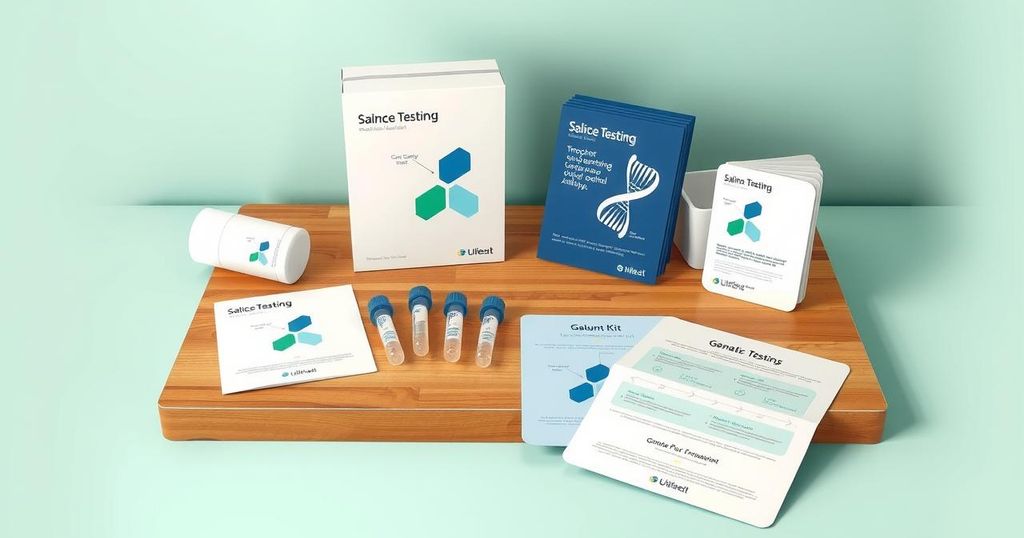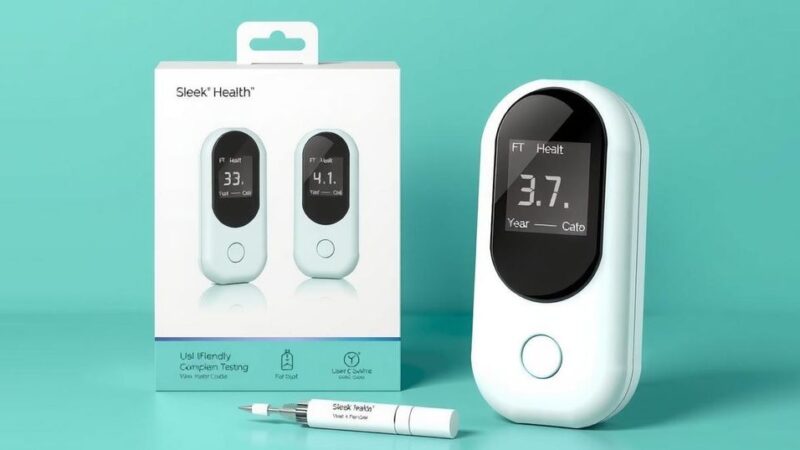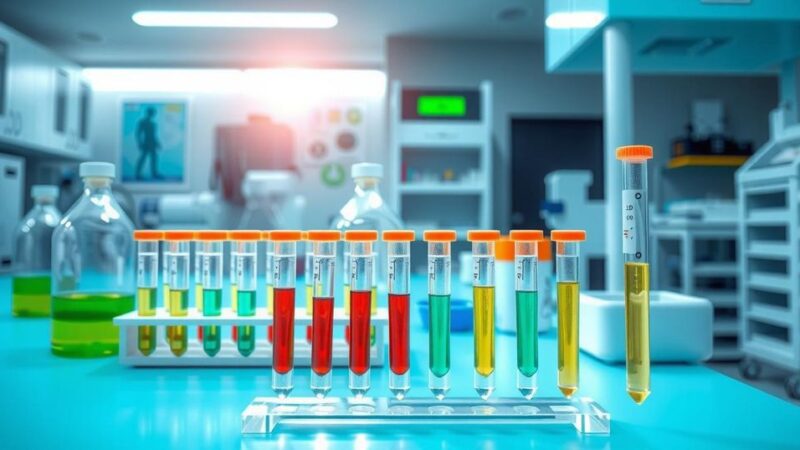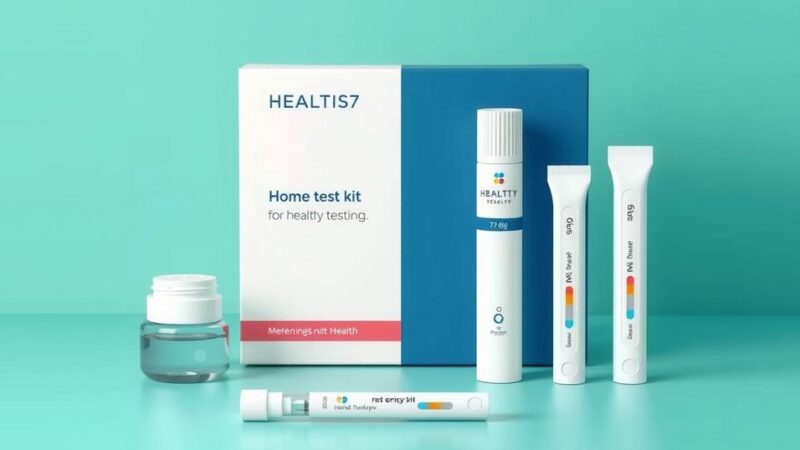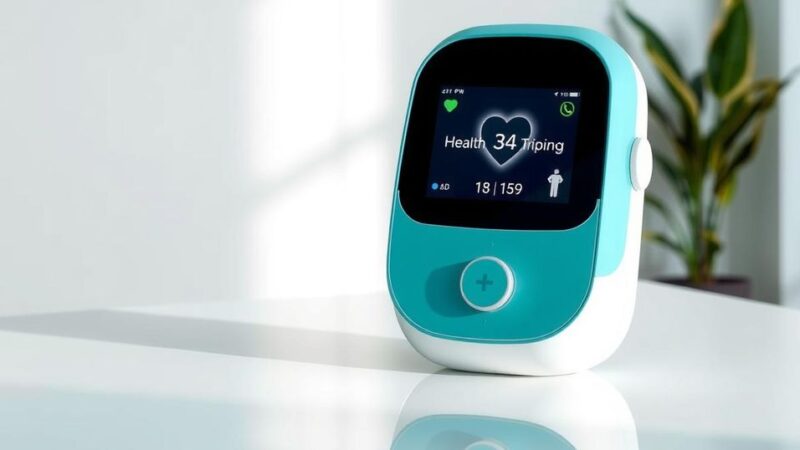Saliva testing is a promising alternative to blood tests for assessing cancer risk. It analyzes DNA in saliva for gene mutations linked to various cancers. While not a diagnostic tool, it can provide valuable information about genetic predisposition, empowering individuals to take preventive actions regarding their health. Accessible through the Hennessy Institute, this testing can be done easily from home, making it convenient for many.
Testing saliva for cancer risk is emerging as a more appealing alternative to traditional blood tests. Saliva can unveil genetic info indicating one’s cancer susceptibility, highlighting its usefulness, especially for those wary of needles. According to Dr. Elias Obeid, medical director at the Hennessy Institute, it’s both the least invasive and just as accurate as a blood test. “For people who don’t like to get needle sticks, this is probably the perfect test.”
Saliva testing has the potential to identify genetic mutations linked to various cancers by checking the DNA present in saliva samples. When your body sheds cells, those cells can mix with saliva, making it viable for testing. The collection process is straightforward—just spit into a tube and send it off to the lab where experts will analyze it for gene mutations that indicate risks for cancers like breast, colon, and ovarian cancer.
Dr. Obeid adds, “Most tests look for mutations in genes related to different cancers, including those associated with increased risk of breast, colon and ovarian cancer.” However, it’s critical to choose a reliable test. While services like 23andMe provide insights into ancestry and general health, they don’t accurately assess cancer risks. Different saliva test kits target various specific mutations, offering insights into a range of cancers from breast to pancreatic.
It’s key to note that while saliva testing can signal an elevated genetic risk for cancer, it won’t diagnose cancer itself. There are other tests designed specifically for cancer detection. “A genetic test can tell us if somebody has a genetic risk of developing cancer,” Dr. Obeid explains. “But it is possible for someone to have a genetic risk and never go on to develop cancer.”
Evaluating cancer risk at an early stage could lead to better prevention strategies and outcomes. For instance, if someone carries a BRCA mutation, additional screenings might be necessary, or preventive surgeries could be considered. This kind of testing proves beneficial, particularly when family health history is ambiguous or simply unknown. “There are times where the family does not talk about what’s going on,” Dr. Obeid said.
Still, saliva testing isn’t foolproof and results may not always be reliable for everyone. “Even if you did everything right submitting your saliva sample, you might not shed enough DNA for the lab to detect what they need to detect,” Dr. Obeid cautions, suggesting blood tests as an alternative in such cases.
Anyone interested in saliva testing for cancer risk can access this option through Hackensack Meridian Health’s Hennessy Institute without needing to visit a clinic. “We’re trying to reach individuals in their homes as much as possible,” Dr. Obeid says regarding the convenience of at-home testing. To start, an online risk assessment questionnaire is available which evaluates health history and provides feedback via email. If qualified, insurance may cover testing costs while out-of-pocket fees hover around $250 at most.
The aim is straightforward: to empower individuals with information that can help them take proactive steps regarding their health. Learning about potential cancer risks can spur valuable actions towards prevention. Dr. Obeid concludes, “Learning this information can be empowering, providing insight into your risk and opening up possibilities for action.”
Saliva testing for cancer risk offers a less intrusive and accessible method for individuals to learn about their genetic predisposition to several cancers. It’s essential, however, to choose credible testing options and understand that while these tests can indicate risk, they do not diagnose cancer. Early awareness can lead to preventive measures and better health outcomes. Hospitals like Hackensack Meridian’s Hennessy Institute are making it easier for people to get tested, emphasizing the importance of education in health management.
Sumber Asli: www.hackensackmeridianhealth.org
